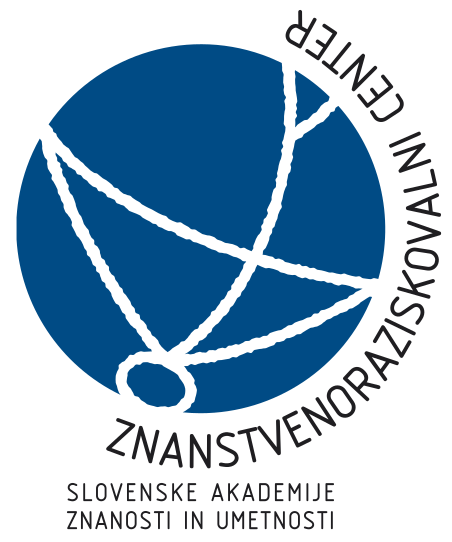Difference between revisions of "Institute of Philosophy"
(imported from XML by extractor/importer) |
m (Text replace - "{{Abstract" to "{{Teaser") |
||
| Line 19: | Line 19: | ||
}} | }} | ||
| − | {{ | + | {{Teaser| |
The [[Institute of Philosophy]] of the [[Scientific Research Centre (ZRC SAZU)]] of the Slovene Academy of Science and Arts was founded in 1979 as the Institute of Marxist Studies and was renamed the Institute of Philosophy in 1988. The research carried out by the Institute covers four areas: philosophy as it relates to science, to art, to politics and to itself. Since its foundation, the Institute has conducted research, contributing to ongoing international philosophical debates. The research areas which are systematically and continuously explored by researchers and associates of the Institute include ethics, aesthetics, contemporary philosophy, political and legal philosophy, the philosophy of language, history and the history of political thought, French epistemology, the philosophy of Kant, the philosophical significance of psychoanalysis (particularly of Lacanian psychoanalysis) and medieval philosophy. Some of the Institute's research areas form part of the educational programmes of the [[University of Ljubljana]] and the [[University of Maribor]]. | The [[Institute of Philosophy]] of the [[Scientific Research Centre (ZRC SAZU)]] of the Slovene Academy of Science and Arts was founded in 1979 as the Institute of Marxist Studies and was renamed the Institute of Philosophy in 1988. The research carried out by the Institute covers four areas: philosophy as it relates to science, to art, to politics and to itself. Since its foundation, the Institute has conducted research, contributing to ongoing international philosophical debates. The research areas which are systematically and continuously explored by researchers and associates of the Institute include ethics, aesthetics, contemporary philosophy, political and legal philosophy, the philosophy of language, history and the history of political thought, French epistemology, the philosophy of Kant, the philosophical significance of psychoanalysis (particularly of Lacanian psychoanalysis) and medieval philosophy. Some of the Institute's research areas form part of the educational programmes of the [[University of Ljubljana]] and the [[University of Maribor]]. | ||
}} | }} | ||
Revision as of 04:23, 27 November 2009
-
3 May 2017
(Un)imaginary Balcans: The Politics of Identity and Migration Practices, a panel discussion featuring Marina Gržinić Mauhler (Scientific Research Centre (ZRC SAZU), Slovene Academy of Science and Arts, Institute of Philosophy) in the context of the project EUROPOLY
Some of the fields of research of the Institute form part of the postgraduate program Intercultural Studies-Comparative Studies of Ideas and Cultures, organised jointly by the Scientific Research Centre (ZRC SAZU), Slovene Academy of Science and Arts and the University of Nova Gorica, as well as part of the educational programmes of the University of Ljubljana, the University of Maribor, the University of Primorska and the Institutum Studiorum Humanitatis (ISH) – the Ljubljana Graduate School of the Humanities.
The Institute's researchers lecture on ethics at the Department of Philosophy in the Faculty of Arts, University of Ljubljana, on aesthetics at the Faculty of Humanities of the University of Primorska, on the history and theory of histography at the Faculty of Education of the University of Maribor, and on the epistemology of the humanities at the Institutum Studiorum Humanitatis (ISH)
Current projects of the Institute include Enquiries into Contemporary Philosophy, Aesthetics and Philosophy of Culture, Slovene Philosophical Terminology, Philosophy and Politics in Postmodernity and Philosophy of Visual Arts. The Institute publishes Filozofski vestnik/Acta Philosophica and since 1999 has published the Philosophica book collection in two series, Classica and Moderna (translations of I Kant, A M S Boethius, Aristotle).



